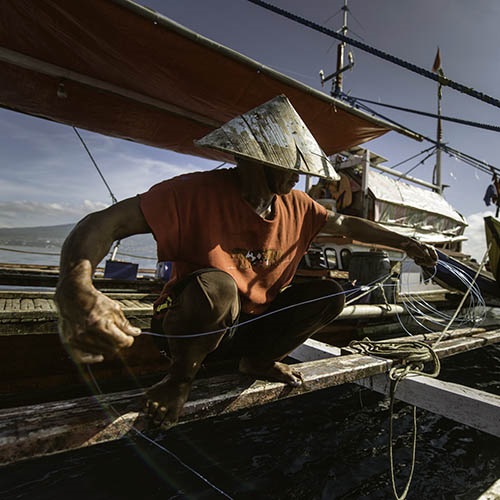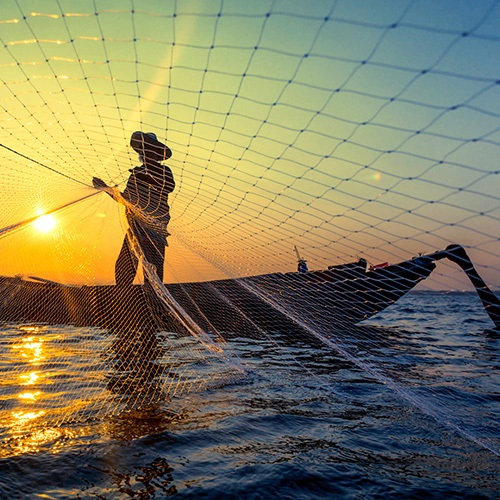Fondation d’Enterprises des Mers Australes and The SARPC Toothfish fishery
Awarded: £27,000
This project, carried out in conjunction with the Paris National Museum of Natural History (MNHN) and the French Southern and Antarctic Lands (TAAF) is researching the best ways to promote the survival of skates affected by fishing in the Southern Ocean.
Skates are well adapted to their bottom-dwelling habitat. However, as a slow-growing species with low reproduction, they are vulnerable to fishing.
The MSC certified SARPC toothfish fishery has implemented management measures to reduce its impact on skates. Improvements include developing 'cut-off' practices that release alive individuals and 'move-on' methods that avoid densely populated areas. But bycatch of skates still represents around 5% of their catch.
Fondation des Mers Australe are improving their knowledge of skate ecology and population sizes. They are also researching the effectiveness of cut-off practices. The SARPC fishery is providing detailed data going back to 2006 to complement an electronic tagging programme being undertaken by scientists. Findings could provide guidance for other toothfish fisheries in the area.
Analysing the stomachs of ocean skates
The project was severely delayed due to Covid-19 travel restrictions but last year invited PhD student, Johanna Faure to join the project. Johanna is investigating the biology of two skate species (Bathyraja eatonii and Bathyraja irrasa) and their diet through analysis of their stomach contents. The samples will also be sent for isotopic analysis which is a method used to help understand which geographic region and population the individuals are linked to.
Around 4,000 rays have been successfully tagged in order to estimate the population size in Kerguelen and Crozet as well as how many skates survive after being accidentally caught. The analysis will depend on a Mark-Recapture technique which involves looking at how many are tagged upon recapture. This is necessary in populations where it would be impossible to count every individual.
The project has also partnered with the Australian Antarctic Division of the Department of Agriculture, Water and the Environment of the Australian Government (ADD) and the veterinarians at the Aquarium Vet in Australia to understand the severity of injuries that might occur, so that the fishery can make improvements to its operations, where required.
Habitat modelling to reduce bycatch
Alongside a literature review on the life history traits of three skate species, the project has also undertaken habitat modelling. This involves updating a map of the key risk areas the fishery should avoid when fishing.
The researchers also plan to consider how birds predating on the skates after they are released from the vessel, impacts their instant mortality rates. A training video is also being developed to teach fishers how to safely release the skates unharmed back to the ocean.
“Skates and rays are still poorly known species. Together with sharks they belong to a group with a particular biology that makes them very vulnerable to overexploitation. We hope that the international scope of the MSC will enable other fisheries facing the same phenomenon to also adopt the good practices that will result from it.”
Fondation des Mers Australes
Find out more

Our impact projects
Discover projects supported through the Ocean Stewardship Fund that are helping to grow sustainable fishing worldwide.

The Ocean Stewardship Fund
The Ocean Stewardship Fund offers grants to both MSC certified sustainable fisheries and improving fisheries.
